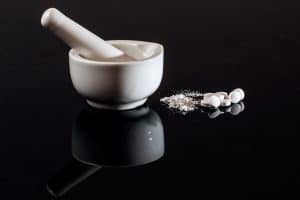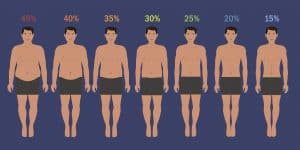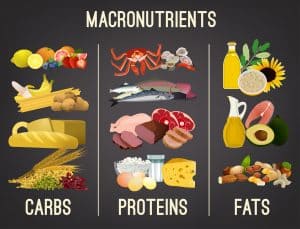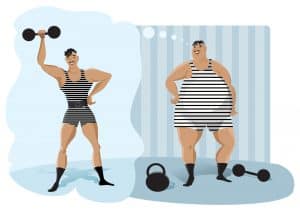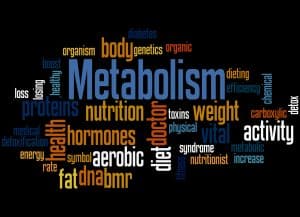Insulin has a bad rap in dieting. It’s painted as the substance that makes you fat, so many people believe they must avoid—or escape—it at all costs. Insulin is also blamed for causing diabetes and is known in many health communities as “evil”.
It might surprise you, then, to learn that insulin is necessary for muscle growth, and it can assist your weight loss too. Those of us who are insulin-sensitive can (and should) use its power to achieve the bodies we want, and I’m going to tell you how.
Insulin Explained
Glucose is a sugar (simple sugar), so it’s just as feared (or hated) as insulin, but this is all a misunderstanding. Some people mistake it as toxic, but to the contrary, it’s a necessity. It’s described as the most important metabolite that your body requires for energy. Without glucose, your cells would not be able to perform.
Insulin is the hormone that regulates glucose (and other metabolic processes) in your body. No matter what you’ve heard about its “harmful” impact, the truth is that your body cannot function without it.
Insulin enables the absorption of glucose into your cells. Without it, there are two significant conditions that might arise: Hypoglycemia (low blood sugar), and hyperglycemia (high blood sugar).
Both of these conditions mean that there is an imbalance of glucose in your body. Be it due to a deficiency of insulin, or insulin malfunction, it won’t be able to transport glucose to where it needs to be. Your cells are therefore starved of energy, and your metabolism will begin to break down.
Insulin: Resistance vs. Sensitivity
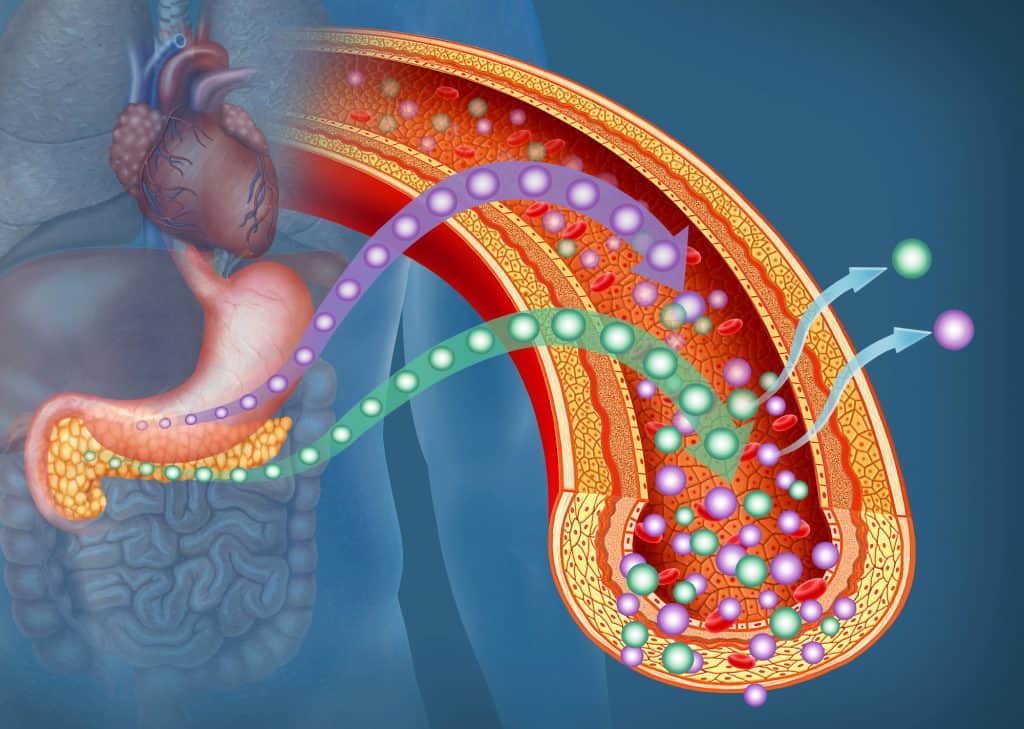
To be insulin resistant means that your body cannot effectively produce, process, or respond to insulin, which opens you up to the conditions mentioned above. Studies show that it is common in obese subjects. It’s also linked to diabetes.
When you are insulin resistant, insulin has a reduced effect on your metabolism. This compels your pancreas to produce more of it to compensate, until it runs out. When this occurs—when your body no longer produces insulin—pre-diabetes, and inevitably type 2 diabetes, develop.
It could be that insulin resistance is caused (or at the very least worsened) by disruptions in your insulin signaling due to a build up of fat in your muscle tissues. One study shows that a poor lifestyle can exaggerate insulin resistance. I must note that although weight seems to be a significant risk factor, slim people are not immune.
Beyond diabetes, insulin resistance has been linked to other conditions, including heart disease, liver dysfunction, and cancer.
On the other hand, if you are insulin sensitive, as you should be, insulin signaling is left uninterrupted. Therefore glucose is managed, transported, stored, and used correctly. Insulin sensitivity is beneficial to both muscle development and weight management.
In other words, if you have high insulin sensitivity your body and muscles effectively use glucose which reduces your blood sugar. Therefore, your pancreas will not work hard to produce insulin.
Inversely, if you have low insulin sensitivity, your body will not effectively utilize glucose (sugar) which will remain in the blood-stream. Hence, this will put more pressure on the pancreas as it will respond by producing more and more insulin (since you’re not very insulin sensitive).
Because of insulin’s effects on protein, muscle, and fat burning, some bodybuilders inject it as a performance enhancer. This is a highly dangerous practice. Though insulin sensitivity is a good thing, an overload of insulin could have adverse effects.
Insulin Sensitivity In Fitness
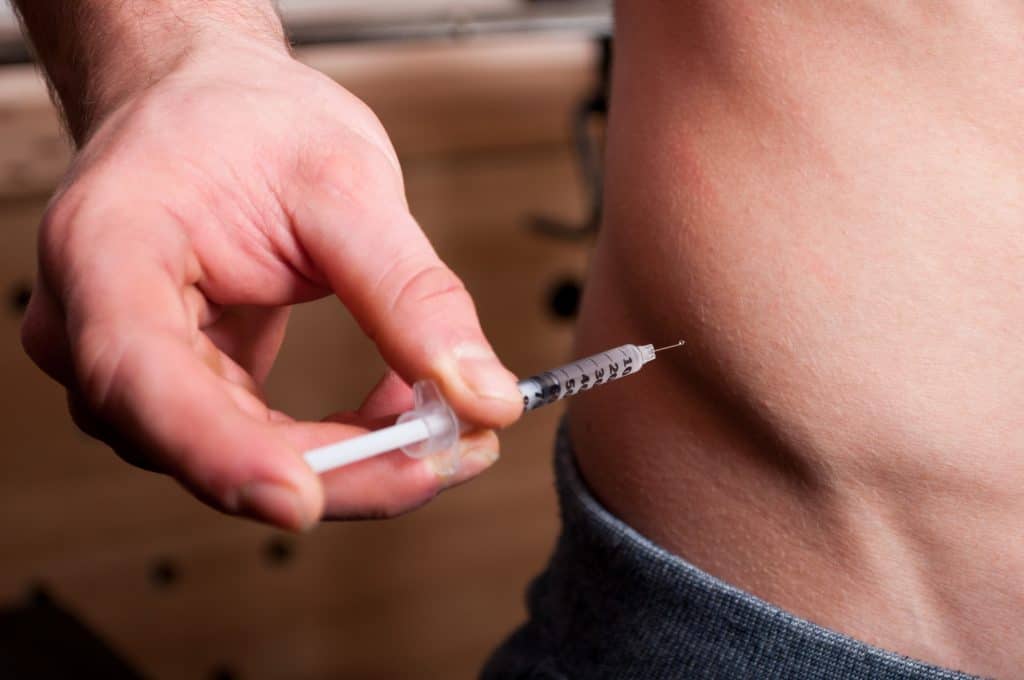
Insulin is one of the driving forces of your intermediary metabolism, and its function controls how and where energy is used or stored. In doing this, it also regulates your carbohydrate, lipid, protein, and mineral metabolism too. Here is a closer look at insulin’s various (and important) processes in your system.
- Insulin Allows Glucose to Enter Your Muscle Tissues
Insulin is necessary for the regulation of glucose in your muscle tissues because it’s the only way that your muscles can obtain their required energy. It also manages the disposal, oxidation, and storage of glucose in your muscles by maintaining insulin equilibrium (homeostasis).
What’s more significant to muscle builders is that insulin not only encourages protein synthesis, it prevents your muscle structure from breaking down.
It’s been found that muscle tissue plays an important role in achieving glucose homeostasis, and may be a deciding factor in your blood sugar levels. This research emphasizes the importance of insulin sensitivity for muscle gain.
- It Enables Fat Loss and Muscle Retention
Insulin can also affect your muscle growth by influencing how your body breaks down fat. How your body uses fats and carbohydrates is noted as similar, and so insulin is just as effective at burning fat as it is at processing sugar.
Insulin stimulates the production of glycogen—the primary form of glucose when it’s stored for later use. Think of it as an energy reserve rather than fuel. When your liver has reached its limit of glycogen, excess glucose is then transported elsewhere, which leads to the creation of fatty acids.
In this process the fatty acids are used as fuel instead of sugar, meaning that your body burns fat without breaking down your muscles.
Though insulin causes your body to store more fat, it’s a myth that it increases weight gain. Regulating your sugar and fat intake to achieve optimal calorie burning is the primary factor in weight control.
Insulin makes it so that energy is stored where it needs to be, preventing sugar build up in your blood. It is up to you how you use the energy that it retains.
One more thing to note is that your appetite and eating habits will affect how well insulin stores fat. Controlling how much food you take in triggers a cycle between insulin and another hormone, leptin, in increasing how much fat your body will burn.
To summarize this, it’s not to say that insulin sensitivity will automatically improve your weight loss. Instead, insulin sensitivity means that your body will be more able to burn fat if your diet and lifestyle accommodates it and set it off.
Insulin and Muscle Building
There is some debate regarding the effect of insulin on muscles, but as I mentioned, insulin promotes protein synthesis, and therefore is necessary to muscle building. To take it a step further, there is evidence to suggest that low muscle mass could result in insulin resistance.
Your muscles are made of protein, but they’re powered by glucose. When your muscles are put to work, they draw glucose from your bloodstream to burn it as energy. The more you exercise, and the more your muscles work, the more your blood sugar will be regulated.
Because of this, the more muscle you have, the less insulin your pancreas has to produce. In the long run, this increases your insulin sensitivity. Since insulin sensitivity also promotes fat oxidation, resistance training is established as an excellent way to maintain insulin sensitivity.
Another factor in this is afterburn. After resistance training, your muscles are still working. This means that even when you are not exercising, your muscles are still burning fuel, in this case, sugar.
Overall, insulin and muscle are mutually important. Insulin encourages muscle growth, while muscle growth regulates insulin.
Insulin and BCAAs
To further promote the significance of insulin sensitivity for muscle gain, another feature is that insulin transports BCAAs (branched-chain amino acids) to your muscles. BCAAs are the building blocks of protein and are therefore keys in the structure of your muscles. Insulin plays a role in metabolizing BCAAs and using them to reinforce your muscle strength.
Prevention of Protein Breakdown
Insulin not only builds and promotes protein, but it also protects it too. This is thanks to its anti-catabolic properties. Your body is never truly dormant, and although protein synthesis occurs often, so does protein catabolism.
The way to build muscle is to make more protein than your body destroys. Insulin retains protein and prevents it from being wasted, degraded, or broken down. In the long run, this means that you’ll have more muscle, with less effort.
Improved Performance
Insulin increases your enzyme utilization. More research is required to determine how much of an effect this has on your muscles, but it’s theorized that this could enhance your muscle endurance, recovery, and overall performance.
Three Ways to Improve Your Insulin Sensitivity
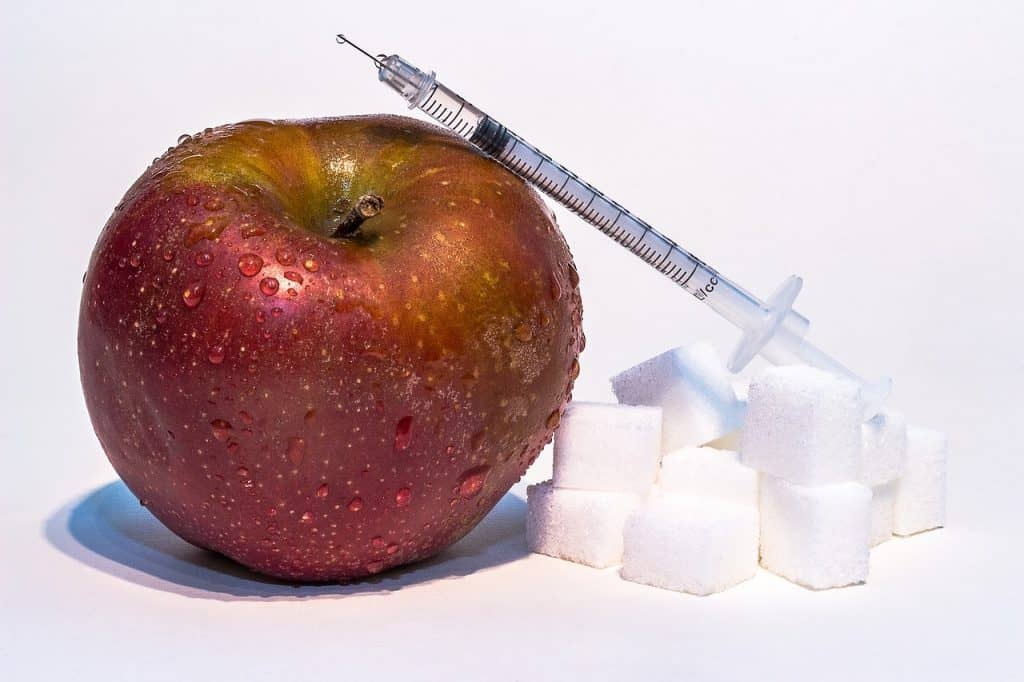
To a certain degree, genetics plays a role in how you process insulin. Mutations in insulin receptors could make you predisposed to resistance. Further research is required to determine how much this factors in.
As far as we know, genetics is not the ultimate decider in your insulin sensitivity. Your DNA and age might make you more susceptible to fluctuations in your insulin production, but your lifestyle weighs in more.
The good news is that insulin sensitivity can be improved, and insulin resistance can be reversed, so long as it hasn’t escalated into diabetes. Your diet and fitness are most effective at managing your insulin processes and there are steps that you can take to optimize it.
As one of the studies I’ve mentioned prove, your weight plays a role in your insulin distribution. Fitness is the best way to combat insulin resistance, but it’s not fail-safe. Even if you are at your ideal body weight, you will have to pay attention to your diet too.
You take glucose in through food, and an excess of it in our diets could potentially cause your pancreas to work overtime. This is one of the reasons why low-carb diets are all the rage, as limiting carbohydrates reduces your sugar intake, which in turn impacts your insulin.
Beyond dieting, here’s what you should take into consideration if you want to reap the full benefits of insulin sensitivity for muscle gain and weight loss.
1. Increase Your Cardio Regimen
Cardio is just as important to bodybuilders as resistance training is. Although resistance training has a noticeable effect on insulin and muscle growth, cardio can improve your insulin sensitivity overall.
One study, in which diabetic patients were observed, showed a significant improvement in insulin regulation. High-intensity interval training has also shown promising results in dramatically reducing insulin resistance in diabetic subjects.
These come with the caveat that diabetes cannot be cured, but naturally, in non-diabetic patients, this can vastly benefit your insulin sensitivity. One study to support this tested non-diabetic patients and showed that the result is the same.
Cardio can increase the uptake of glucose into your cells, so long as you perform a sufficient amount of exercise.
2. Manage Your Carb Intake
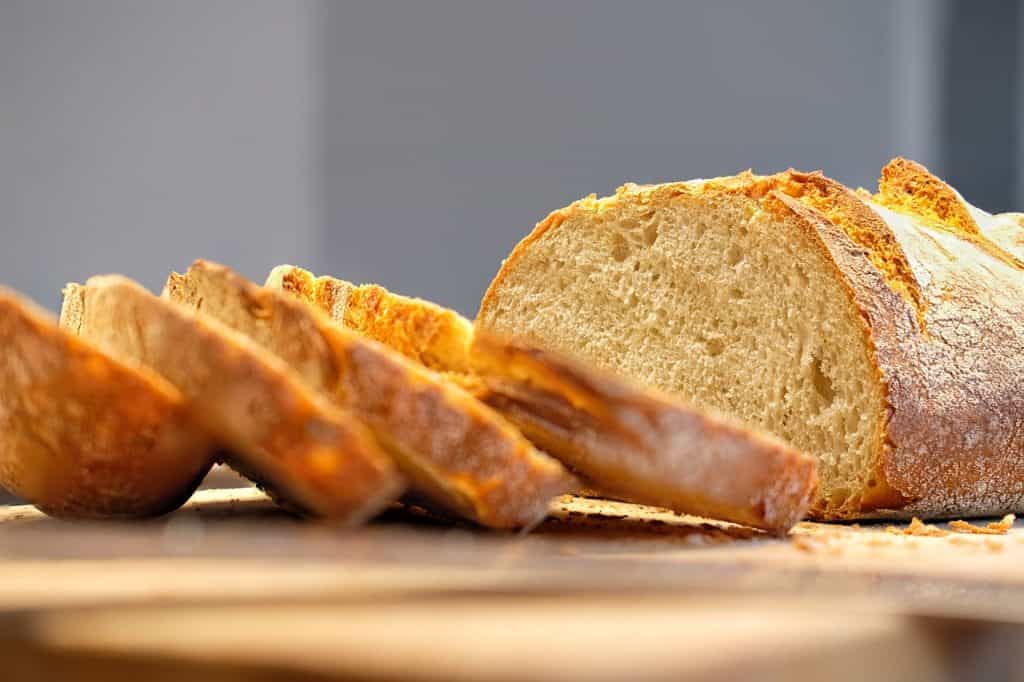
Carbohydrates are hotly debated in fitness, and when it comes to glucose and insulin, there is much confusion. Some sources advise cutting carbs out completely, others will tell you to increase your carb intake.
The misunderstanding is most likely due to the myth that glucose (or insulin) can make you fat. It is true that glucose produces more fat for your body to store, but as I have explained, this does not affect our weight—your fitness does.
When it comes to carbs, one study found that altering your carb intake most likely won’t affect your insulin sensitivity and that fats are more of a problem.
It is not necessary to cut out all carbs, though you should consider which carbs you take in, and how much of them you eat. Optimizing your carb intake, in conjunction with exercise, will improve your blood sugar levels, which will demand less insulin in your body.
An interesting investigation found that an increase in carbohydrates and fiber could be a factor in managing insulin sensitivity, contrary to popular belief. Still, most data suggests that a low-carb/high-protein diet is most beneficial to insulin sensitivity. One study found that blood sugar, cholesterol, triglycerides, and insulin sensitivity were all improved with a reduction in carbs.
As a rule of thumb, there are certain foods to avoid when it comes to glucose. A recommended diet includes:
- Foods that are high in omega-3 fatty acids, with emphasis on fish.
- High fiber foods.
- Citrus fruits.
- Non-starchy vegetables, especially leafy green ones.
- Tomatoes.
- Grains.
- Lean proteins.
- Antioxidant-rich foods, such as berries.
- Sweet potatoes instead of potatoes.
- Unsweetened teas.
- Water, in place of sugary drinks.
Foods to avoid are:
- Sweetened drinks (including fruit juice).
- Alcohol, with beer and other grain-based drinks in particular.
- Starch.
- Processed foods, snacks, and candies.
- Refined grains (including bread, rice, and pasta).
- Cow’s milk and its byproducts.
- Saturated fats.
- Fried foods (even if they’re on the accepted list).
3. Pay Attention to Your Vitamins
How you supplement your vitamins might impact your insulin sensitivity. One study shows that vitamin C and E—the main culprits—don’t inhibit insulin sensitivity, but they could alter it.
It depends on how and when you supplement it. There is no evidence to suggest that they’ll cause adverse effects when taken naturally, but when supplemented, they could impact protein synthesis.
To be safe, it’s recommended that you avoid supplementing these vitamins directly after exercise.
Supplements

Speaking of supplements, you could improve your insulin sensitivity if you choose wisely. The following could improve insulin sensitivity, while further promoting muscle growth and weight management:
- Omega-3 Fatty Acids: There are numerous benefits to omega-3 fatty acids, some of which affect your insulin processing. These fatty acids can reduce the effect of trans-fats and saturated fats. They can also strengthen your insulin signaling.
- ALA: Studies show that alpha-lipoic acid may also enhance your glucose metabolism while strengthening your muscles, even if you are insulin resistant.
- Magnesium: A deficiency in magnesium is linked to the development of insulin resistance. One study found that magnesium is necessary for insulin signaling.
- Chromium: Evidence suggests that chromium supplementation is beneficial to your metabolism as a whole. It reduces insulin resistance and decreases the effects of metabolic syndrome.
- Vitamin D: Beyond associations to many other illnesses and conditions, Vitamin D is known to reduce insulin resistance. A deficiency is linked to insulin resistance in obese subjects.
- Post-workout proteins: There is research to suggest that fueling up on protein after a workout could better promote insulin sensitivity. One theory is that your muscles are most receptive to insulin signaling at this time and that your insulin sensitivity peaks right after exercise.
While it may not be necessary to supplement, they’re an easy way to effectively promote insulin sensitivity. I have to note though, that they won’t make any difference if they’re not used in line with good exercise and dietary habits.
It’s best to consult a medical practitioner before you begin any course of supplements. If you are insulin resistant, or at risk of prediabetes, you’ll want to get their advice before you begin. They’ll be able to further you advise you on the supplements that are best for you.
Summary
Insulin sensitivity is often overlooked in fitness, mostly because the role of insulin in health is sorely misunderstood. It is not to be avoided, as it plays a vital role in your health. It distributes energy to your cells, and powers your body.
While an excess of it is just as bad, what’s important is to regulate it. If you are insulin resistant, your body will not be able to operate as it should, and your blood sugar will be affected. In non-diabetic patients, insulin resistance can be improved through healthy lifestyle choices.
Managing your insulin sensitivity is an effective way to build muscle and lose weight, but it is not a miracle solution. You still have to put some effort into it, by controlling your exercise and diet.


